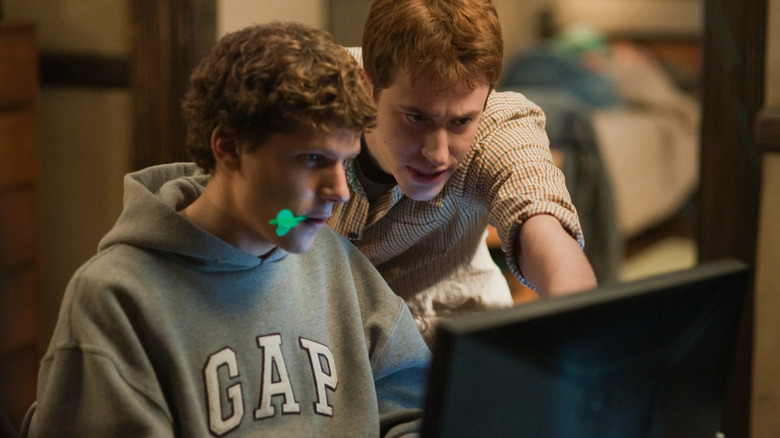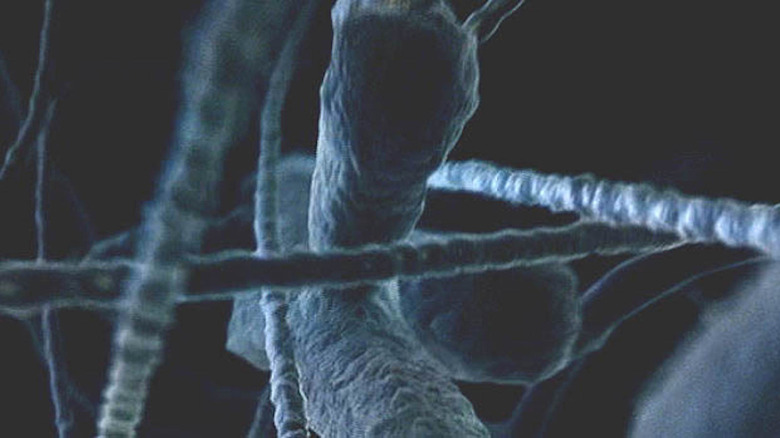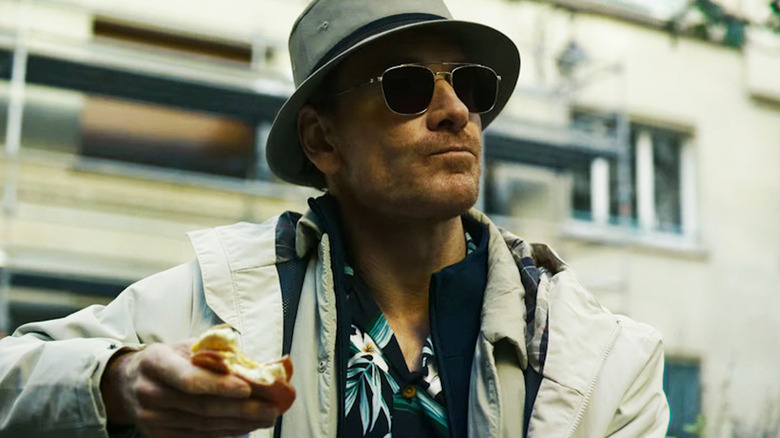Why Director David Fincher Isn't Worried About AI
With the exception of "The Curious Case of Benjamin Button" (and maybe "The Game"), David Fincher's oeuvre (including his television series "House of Cards" and the dearly missed "Mindhunter") collectively expresses a resoundingly dim view of humankind. He's not cruel about it, nor is he despondent; often, he seems darkly amused by the unfettered manifestation of our worst instincts, and the heights people can reach when they eschew inconvenient virtues like compassion and ethics.
Even when he gets a tad heavy-handed with his messaging (though, given the pernicious misinterpretation of "Fight Club" by incels and Q-Anon-ers, perhaps he could stand to lay it on even thicker once in a while), I'm glad a deep thinker and master cinematic craftsman like Fincher is out there exploring our tendency to become our worst selves. He's certainly been swamped with potential inspiration over the last decade, and, given his technical expertise, one subject I'd love to see him tackle is the use of AI as not just as a creative cog, but a full-blown engine. There's an obvious cautionary-tale approach to profoundly untalented goons harnessing the plagiaristic power of ChatGPT to write/publish unreadably robotic text or generate nightmarishly malformed visual art.
Stanley Kubrick would've been all over this in some form or fashion (as with digital cinema, I'm not sure where he would've landed), and Fincher, as arguably the most Kubrickian director of our age, possesses the ideal combination of tech smarts, filmmaking skill, and skepticism to get under the hood of this nascent "virtual assistant."
As Fincher revealed in a 2023 interview with GQ, he's keeping a close eye on the development of AI. How does he feel about it? He's not entirely sure just yet.
Fincher needs AI to meet some fab expectations
At present, Fincher thinks AI-generated visual art is a poor facsimile of work by genuine masters of the medium. "I have friends who are photographic geniuses playing with AI," said Fincher. "And you look at it, and it always looks like sort of a low-rent version of [Academy Award-winning cinematographer] Roger Deakins. And I understand what AI is pulling from in order to make this."
This isn't to say he's completely writing off AI. As he told GQ:
"I think AI's a really powerful tool. And for my money, I have not heard an AI Beatles song that compares to "Eleanor Rigby." So until somebody plays an AI song that knocks me out [...] maybe that's just where we're at now, and I may be eating my words in a year, but I think ultimately, the thing that we respond to in poetry, and writing, and songwriting, and photography, is the personal bent. The thing that's making it [human]."
Asking for an "Eleanor Rigby" is setting a sky-high standard. Perhaps you could get away with something that sounds like Lou Reed's "Metal Machine Music" to an unsophisticated ear (yes, that infamous arrangement of noise has nuance), but a meticulously composed pop song or, getting more ambitious, a classical symphony is clearly well out of range for this tech. For now.
As for AI as a "powerful tool" in 2024, Fincher knows of what he speaks because he used it on last year's "The Killer."
AI is a tool, not a full-service virtual artist
According to Fincher, AI saved him some scrambling in post-production when it came to fixing a bit of Michael Fassbender's dialogue in the hit-man thriller –- and he was tremendously pleased with the results:
"We had a few lines [...] in 'The Killer' that we had looped but we couldn't get right, with Michael, so he said it into an iPhone in an environment that was not conducive to being used as a voiceover, and we could take it and process it through the hours of voiceover that we had, and spit back out, and it was clean, and it was the music of his voice. And that's incredibly handy to have."
It's a slippery slope with AI, but this is an instance where the actor has (evidently) signed off on its use, and no one is losing a job because of its limited implementation. All they did was save some time (i.e. money) to achieve a seamlessly integrated result. Everyone wins.
But as Patton Oswalt once sagely observed, these kinds of big scientific/technical advances are too often "all about coulda, not about shoulda" – and a century of sci-fi movies ranging from "Metropolis" to "Jurassic Park" have warned us of these Icarus-like instincts. But while many of us are leery, if not outright terrified, by what the future of AI holds, Fincher isn't sweating it (again, for now).
As the filmmaker told GQ, "Until the point of time that somebody shows me something that I go — [he slaps his chest] — 'Oh my god, that breaks my heart,' and then they say, 'Oh, well, as it turns out, this was somebody talking into a microphone, and this is the film that came out,' I'm not that worried about it."


